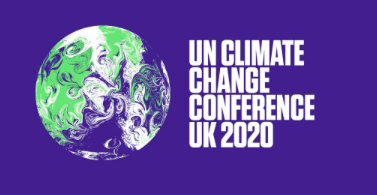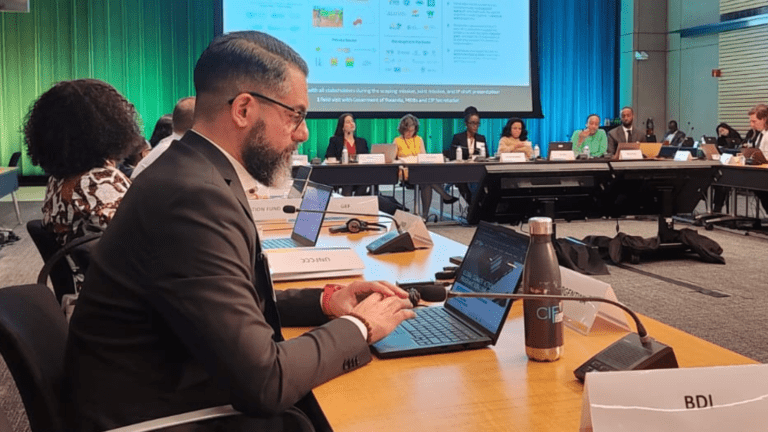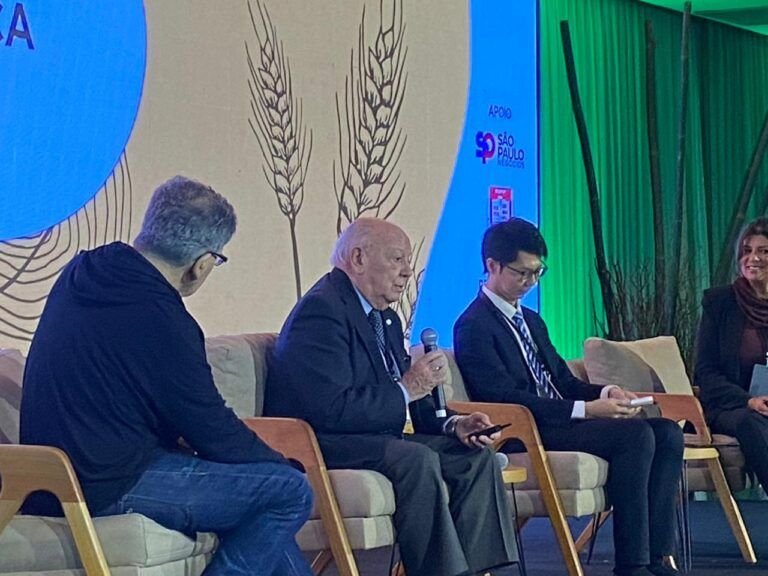About COPs
In 1992, the UN organized a large event in Rio de Janeiro called the Earth Summit, at which the United Nations Framework Convention on Climate Change (UNFCCC) was adopted.
En este tratado, las naciones acordaron «estabilizar las concentraciones de gases de efecto invernadero en la atmósfera» para evitar la peligrosa interferencia de la actividad humana en el sistema climático. En la actualidad, el tratado cuenta con 197 signatarios.
Desde 1994, año en que entró en vigor el tratado, la ONU reúne cada año a casi todos los países del planeta en Conferencia sobre el cambio climático o «COP», que significa «Conferencia de las Partes».
The Paris Agreement was adopted within the framework of COP21, in 2015 and its main objective is to limit global warming to well below 2, preferably 1.5 degrees Celsius, compared to pre-industrial levels. The Paris Agreement progresses in 5-year cycles in which countries submit their climate action plans known as Nationally Determined Contributions (NDCs).
Más información sobre estas conferencias y sus resultados
COP 26: the British presidency, the results achieved and the look to the future
COP26 (which should have been held in 2020 and was postponed by the COVID19 pandemic) was held in Glasgow from November 1-14.
The final declaration of COP26 (Glasgow Climate Pact) fue adoptada el sábado 13 de noviembre con la firma de 197 países presentes. El resultado formal de las negociaciones fue un acuerdo de compromiso que, aunque permitió mantener vivo el objetivo de reducción de 1,5 grados, resultó decepcionante para muchos de los participantes.
Regarding the general commitments assumed:
Finance
The Closing Plenary adopted several decisions on finance (see Glasgow Climate Pact, Long-term climate finance; new quantified collective target on climate finance; y and matters related to the Standing Committee on Finance). Sin embargo, los países más vulnerables expresaron una profunda decepción por el hecho de que la promesa de $ 100 mil millones para 2020 permaneciera pendiente y también expresaron su preocupación con respecto a la calidad del financiamiento proporcionado, refiriéndose a préstamos con altos intereses que a menudo se incluyen en los informes de financiamiento climático. Algunos delegados dijeron que las discusiones sobre finanzas resultaron en una ruptura de la confianza entre las partes.
Article 6
After years of negotiations, the countries finally adopted rules for the implementation of Article 6 of the Paris Agreement on carbon markets. The texts of the final decisions cover three important issues under Article 6: two mechanisms that allow the efficient functioning of international carbon markets, Article 6.2 and Article 6.4, and a third based on non-commercial approaches, Article 6.8.
Agreement on fundamental rules related to Article 6 will provide the basis for the certainty and predictability of market and non-market approaches in support of mitigation and adaptation. However, much more work needs to be done and significant additional technical work will be needed to define and implement the rules in a way that works for the real economy and protects the environmental integrity and ambition of the Paris Agreement.
Common deadlines
Negotiations on the issue of common deadlines, the period in which all countries must submit and communicate their NDCs or national climate commitments, concluded with the adoption of a final text.
While many countries supported a single common time frame of 5 years, others called for a more flexible time frame with commitments of 10 years or different combinations. The final texts “encourage” all parties to submit commitments every five years, starting in 2025 covering the period 2031-2035, with a more lax formulation than the legal texts of the UNFCCC.
Farming
Recognizing the importance of the agricultural sector to adapt and mitigate climate change, the Parties have been discussing this issue in the framework of the so-called Koronivia Joint Working Group on Agriculture established at COP23.
At COP26, countries adopted draft conclusions on improving nutrient use, improving livestock management systems, and socio-economic and food security. The conclusions acknowledge the importance of these issues and also the role of the private sector, but failed to formalize a concrete commitment on implementation. Therefore, the subsidiary bodies of the UNFCCC agreed to continue working on these issues at the next intersessional meeting, scheduled for June 2022, in order to produce a draft decision to be adopted at COP27, to be developed in November 2022. in Egypt.
In addition to these results (considered meager by many countries), there were several announcements and commitments during the conference.
- The United States and China have pledged to boost climate cooperation over the next decade. (see https://www.state.gov/u-s-china-joint-glasgow-declaration-on-enhancing-climate-action-in-the-2020s/)
- Deforestación: más de 120 países, que representan alrededor del 90% de los bosques del mundo, se comprometieron a detener y revertir la deforestación para 2030. El compromiso firmado por los países esta acompañado por 12 mil millones de dólares de financiamiento público y 7 mil millones de inversiones privadas para apoyar la deforestación y la restauración de ecosistemas. (https://ukcop26.org/glasgow-leaders-declaration-on-forests-and-land-use/)
- Coal: more than 40 countries - including large coal consumers such as Poland, Vietnam and Chile - agreed to abandon coal as an energy source, although without the commitment of China and India (two key countries in the use of coal).
- Climate finance: nearly 500 global financial services companies that agreed to align $ 130 trillion - about 40% of the world's financial assets - with the targets set in the Paris Agreement (https://www.gfanzero.com/netzerofinancing)
- Fossil fuels: 11 countries that have created the Beyond Oil and Gas Alliance (BOGA). Ireland, France, Denmark and Costa Rica, among others, as well as some sub-national governments, launched this alliance, the first of its kind, to set a completion date for oil and gas exploration and extraction at the national level (https://beyondoilandgasalliance.com)
- Global Methane Commitment: initiated by the EU and the US in 2021. During COP26, many countries have joined this commitment to mitigate methane emissions by 30% by 2030. This commitment already includes more than 100 countries It has initial financial support of $ 300 million for its implementation, according to John Kerry at the time of its launch. https://www.globalmethane.org/index.aspx
The role of GPS
Although the most relevant aspect of COPs is negotiation between states, the private sector participates in various ways. The role of agriculture (and especially that of the Southern Cone) is becoming increasingly important within the framework of mitigation strategies based on nature-based solutions (NBS for its acronym in English).
GPS has participated in private sector events at COPs for several years.
En esta oportunidad, se organizó un seminario virtual en el marco de la plataforma global de ICC (International Chamber of Commerce) “Make Climate Action Everyone’s Business Forum”. El panel contó con la participación de Sabine Papendieck (Argentina), Eduardo Bastos (Brasil) y Lucía Pittaluga (Uruguay) y fue moderado por Martín Fraguío (Argentina). El video de la sesión está disponible en nuestro Youtube Channel.
Members of GPS Paraguay and Uruguay were part of various delegations that were present in Glasgow.
We also participated in the latest edition of the Latam Investor publication, dedicated to COP26, with an article written by Martín Fraguío and Paloma Ochoa on the role of agriculture in the Mercosur countries in mitigating climate change.
Currently, we continue to participate and co-organize events on the future impacts of the agreements reached in Glasgow and the role of the agro-industrial value chains of our region in a strategy that addresses, at the same time, environmental care, sustainability and safety food.



